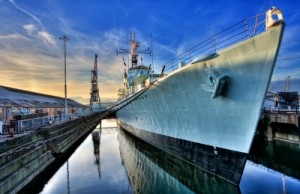
Image courtesy of Robert Radford / freedigitalphotos.net
Maritime mediation is a form of alternative dispute resolution (ADR) that can help parties reach a resolution concerning matters of maritime law. Such law includes, but is not limited to, ship owner liability, shipmaster duties and contract negotiations, maritime worker injury, maritime worker contract negotiations, admiralty and maritime shipping law, and maritime security, as well as all matters related to cruise ships, ferries, dredging vessels and Jones Act claims.
On the international stage, maritime mediation has helped resolve thousands of disputes between countries and borders that could have resulted in heightened conflict or even war. An example of how countries need maritime mediation occurred in 2012, when the country of Cyprus offered to host maritime mediation between Lebanon and Israel concerning a border dispute centered on exploration of the Mediterranean Sea.
The maritime border dispute had been ongoing between Lebanon and Israel for several years and concerned a small area of the Mediterranean Sea—approximately 850 square kilometers—that both countries claimed. The dispute over the area, and over which country had rights to explore it for resources, heightened to the point of war between the two nations.
While negotiations have been ongoing, neighboring Cyprus has encouraged both countries to enter into maritime mediation to resolve the conflict instead of resorting to violence. However, an agreement signed between Cyprus and Israel in 2010 has distanced Lebanon from consideration of maritime mediation even further. According to Lebanese officials, the agreement conflicts with the United Nations Convention of the Law of the Sea and should be amended before the country will agree to enter maritime mediation.
It remains to be seen how Lebanon and Israel will ultimately resolve its maritime issues, but its neighbors are seeking the peaceful solution of maritime mediation to help both countries avoid a costly (both in lives and in resources) and violent approach.








